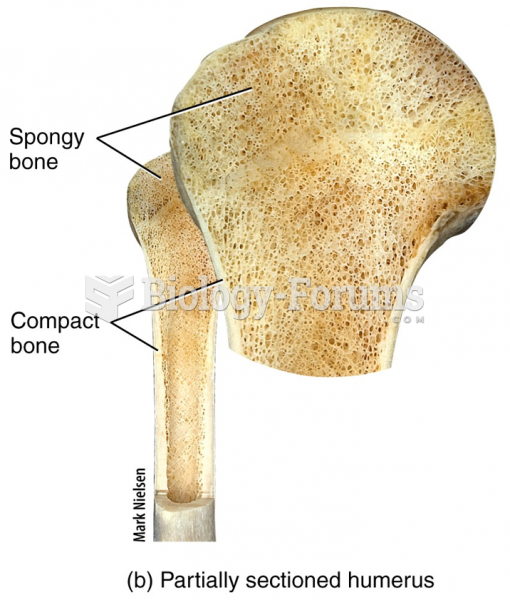|
|
|
Blood is approximately twice as thick as water because of the cells and other components found in it.
Illicit drug use costs the United States approximately $181 billion every year.
When blood is exposed to air, it clots. Heparin allows the blood to come in direct contact with air without clotting.
People who have myopia, or nearsightedness, are not able to see objects at a distance but only up close. It occurs when the cornea is either curved too steeply, the eye is too long, or both. This condition is progressive and worsens with time. More than 100 million people in the United States are nearsighted, but only 20% of those are born with the condition. Diet, eye exercise, drug therapy, and corrective lenses can all help manage nearsightedness.
Egg cells are about the size of a grain of sand. They are formed inside of a female's ovaries before she is even born.







